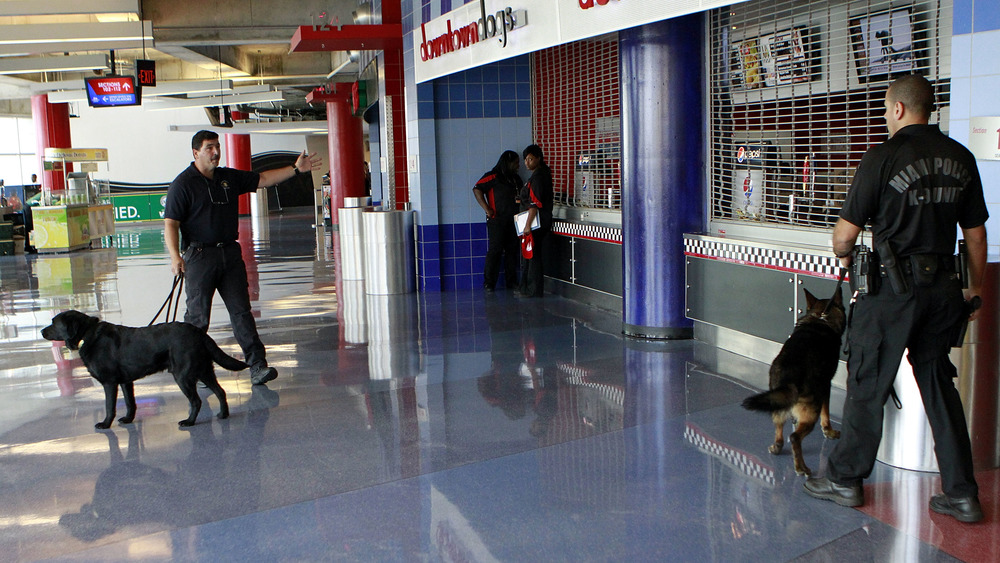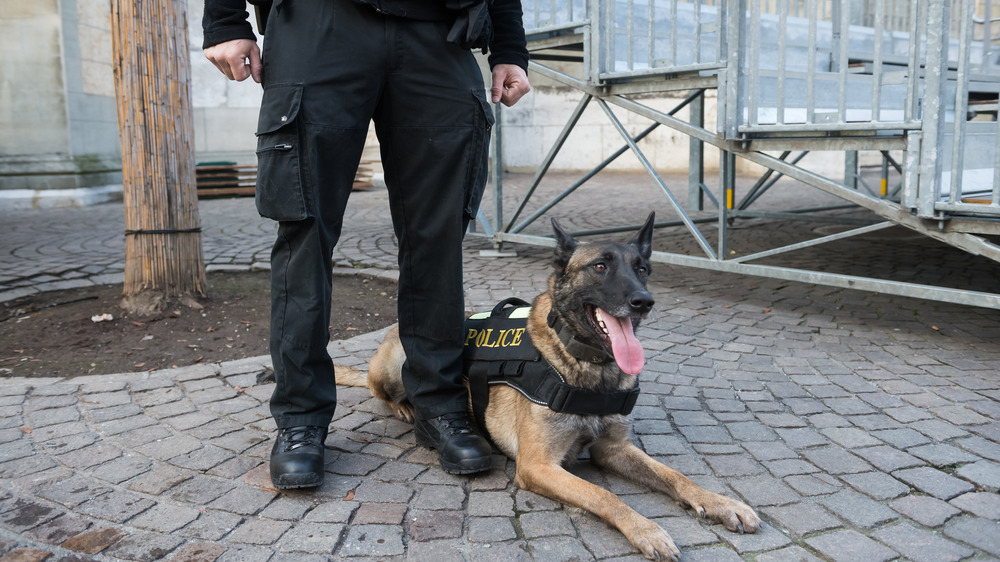The Surprising Way The Miami Heat Are Using Dogs To Screen Fans For COVID
Explosive-sniffing dogs are a common sight at airports and large public gatherings. But in at least one case, the dogs present will now be sniffing out a new kind of threat: COVID-19.
The Miami Heat have announced the use of dogs to screen attendees for the novel coronavirus, according to ESPN. The Heat will begin selling tickets to attend their games to 2,000 season-ticket holders on January 25.
"If you think about it, detection dogs are not new," Matthew Jafarian, the Heat's executive vice president for business strategy told ESPN. "You've seen them in airports, they've been used in mission-critical situations by the police and the military. We've used them at the arena for years to detect explosives."
The team will also be implementing the traditional public health safety strategies like social distancing, masks mandates, and health questionnaires that attendees will be required to answer before entering, according to CBS News. Isolation rooms are available at American Airlines arena for anyone who begins to feel sick during a game.
These dogs' noses have millions of scent receptors
COVID-sniffing dogs have been used around the world for several months, with excellent results. That's because their noses contain about 300 million scent receptors, according to Nature. To put that into perspective, human noses only have about five million. Though the science is still unclear, it's thought that people who are ill, emit scent molecules that the dogs can detect. In trials in Finland and Lebanon, dogs detected COVID-19 in airport passengers with 92 percent accuracy. However, these findings are still unpublished and have not been peer-reviewed.
At Miami Heat games, attendees will be required to stand in an area where the dogs can walk by. If the dog sits, that indicates they've picked up on COVID's scent and the person will not be allowed into the arena. For fans who are allergic, or have a fear of dogs, there will be the option for a fast-turnaround antigen test that will return results in about 45 minutes.


